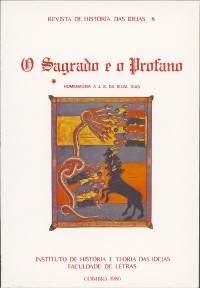Please use this identifier to cite or link to this item:
https://hdl.handle.net/10316.2/45265| Title: | Los limites estamentales de la educación en el pensamiento ilustrado | Other Titles: | The social limits of education in the enlightenment thought | Authors: | Maravall, José Antonio | Issue Date: | 1986 | Publisher: | Imprensa da Universidade de Coimbra | Abstract: | Philosophers of the Age of Enlightenment had, at the time, a decisive influence on the introduction of the system of individual rights and freedoms. The right to education was of special interest to the «enlightened». During the 18th century, however, the dominating social attitude, shared even by most reformers, adhered to the scheme of hierarchical «ordering». As a consequence, although the concept of the right to education for all prevailed, it did so to the extent that education should respond to the professional function of each individual, respecting the hierarchical structure of society: the higher the level in social scale, the greater the education, with a gradual decrease in proportion to that of social level. The «enlightened » questioned the desirability of a certain degree of education, though very limited, for the masses. This approach to the right to education was common throughout Europe during the Age of Enlightenment. | URI: | https://hdl.handle.net/10316.2/45265 | ISSN: | 0870-0958 2183-8925 (digital) |
DOI: | 10.14195/2183-8925_8-1_5 | Rights: | open access |
| Appears in Collections: | Revista de História das Ideias |
Files in This Item:
| File | Description | Size | Format | |
|---|---|---|---|---|
| los_limites_estamentales_de_la_educacion.pdf | 340.82 kB | Adobe PDF |  |
Items in DSpace are protected by copyright, with all rights reserved, unless otherwise indicated.
